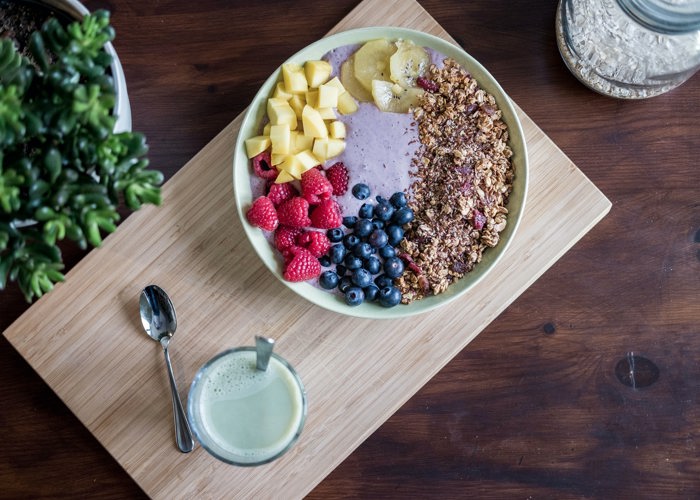Keeping your heart healthy is vital, with about 1 in 8 men and 1 in 15 women dying from coronary heart disease (CHD) each year in the UK* it’s more important than ever to keep our hearts fighting fit.
The food you eat plays a key role in maintaining your heart health. Consuming a diet high in fruit, vegetables and fibre whilst limiting your intake of salt and fat, especially saturated fat, can help to significantly reduce your risk of developing heart disease. Factors that can increase your risk of developing heart disease include family history, stress, smoking, being overweight, drinking too much alcohol, having an inactive lifestyle, raised blood cholesterol and high blood pressure.
Raised cholesterol
Cholesterol is essential for making nerves and hormones as well as helping to digest fat. However having raised levels of ‘bad’ cholesterol and low levels of ‘good’ cholesterol in the blood cause a build-up of fatty deposits in the arteries – increasing the risk of heart disease, heart attack and stroke. Nearly half of all deaths from heart disease in the UK are due to raised ‘bad’ cholesterol levels (more than 5mmol/litre).
High blood pressure
People with high blood pressure have an increased risk of heart disease or stroke. Not everyone with high blood pressure needs to have tablets to control it. Eating too much salt is associated with high blood pressure. Adults should eat no more than 6g of salt a day. 75% of the salt we consume is already in the food we eat, so you may not need to add any extra to your food.
Keeping your heart healthy will also have other health benefits and will help reduce your risk of stroke and dementia. Here are a few tips to keep your heart in tip top shape:
- Stay active
Try to aim for at least 150 minutes of exercise per week. This can be anything from brisk walking or cycling, to ballroom dancing. If you are new to exercise, start small and build yourself up, as any bout of exercise lasting 10 minutes or more counts towards your 150 minute target.
- Healthy balanced diet
Eating plenty of fruits and vegetables, cutting down on saturated fats and reducing salt in your diet can all contribute to a healthy heart. Look out for Reference Intakes (RI) on food packaging to guide your choices. Try to include more fibre rich food in your diet such as oats, pulses such as beans, peas or lentils have been shown to help lower cholesterol levels. Soya has also been shown to lower cholesterol and is a great vegetarian source of protein. Oily fish such as mackerel, sardines and salmon provide omega 3 fats which help keep your blood healthy, so try to eat at least one portion of oily fish a week. Alternatively for vegan or vegetarian diets, including a mix of nuts and seeds such as walnuts and linseeds that are high in omega 3 can help too.
Foods high in saturated fats include butter, lard, fatty red meat, skin on chicken, cheese, cream and any foods made from these such as pastries and cakes. Eating too much can increase your ‘bad’ cholesterol levels while limiting your intake of these fats can help to reduce your ‘bad’ cholesterol.

- Smoking
Smokers are almost twice as likely to have a heart attack compared with those who have never smoked. Stopping smoking has huge benefits and it’s never too late to give up.
- Stress
Stress may contribute to your risk levels of developing CHD. If you often feel stressed or anxious, it is important to learn how to relax. Going for a walk and keeping active can help de-stress and take pressure off the heart.
* British Heart Foundation, Heart and Circulatory Disease Statistics 2019


